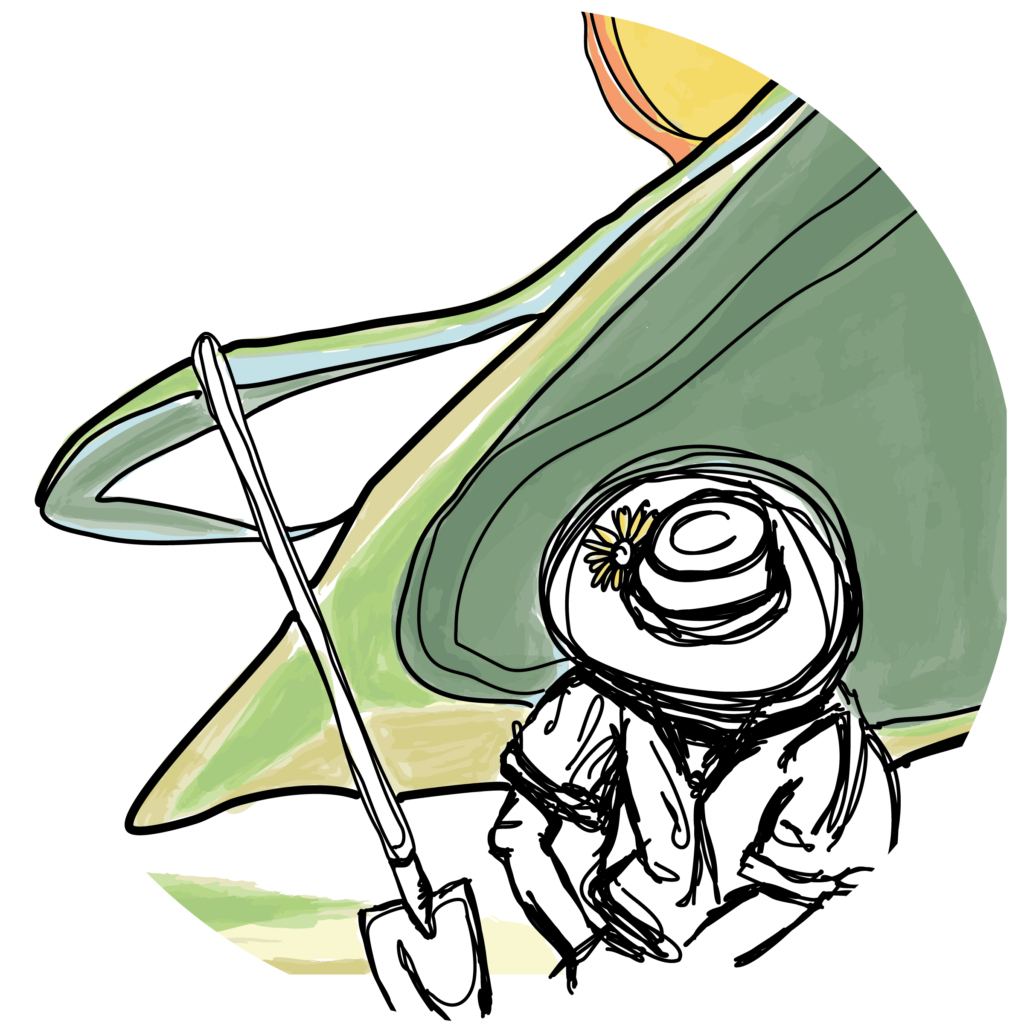Creating A More Livable Future
A 3-Month Residential Sustainability Semester
Dates: May 22, 2024 – August 10, 2024
Ages: 18+.
Cohort Size: 3-4 students
Location: Paonia, Colorado
Tuition: $500 for 2024.
Application Deadline: February 28, 2024.
Notification Date: March 15, 2024.
College Credit: For students with an undergraduate degree in progress, Groundwork offers university credit through the CU Boulder Environmental Studies program. For 2024, we are working on agreement to offer credit through Northland College and Naropa University as well. Credit amounts vary from school to school, but are typically 3-6 credits. Past participants have also received internship and independent studies credits, arranged on an individual basis with their university, and we are happy to provide materials to your school to arrange something similar.
How can we live so that future generations might see us as good ancestors?
Young people today are inheriting a world in crisis. Societies across the globe are forgetting—or being forced to forget—what it means to live in reciprocity with the landscapes that nourish them. Today, “the good life” seems to be composed of shopping malls, traffic jams, and endless consumption. This summer semester is for people seeking an alternative. Join us to develop the skills and practices to live otherwise.
Program Overview
Throughout the summer, food serves as the lens through which we see our relationships with the Earth. Our food systems are a web connected to all aspects of our relationships with the Earth. In our relationship with a single seed, we can see our relationship with water, fossil fuels, climate, land stewardship, histories, economics, supply chains, policy, and culture.
Groundwork’s summer sustainability semester is an exploration outside of the ordinary to investigate what it means to live sustainably. You’ll live lightly in a small community, tend our 1-acre farm, and study sustainability in philosophy and in practice. At Groundwork, sustainability is not about a techno-utopian vision of solar panels and electric cars. It’s about deeper questions: what it means to be a human being alive in an unraveling world; replacing a life of commodity with community, extraction with reciprocity, busyness with slowness, and learning how to come home to ourselves and to the land. Sustainable societies are rooted in different beliefs, values, and ways of knowing and being than most of what we encounter in day-to-day life in contemporary culture. In other words, they have at their foundation a sustainable culture. This is what we will investigate during our time together: what are the beliefs and values that lie at the heart of sustainable culture? What does it mean to think and act from these values? When rooted in these values, where might we find our sense of purpose and meaning?
At Groundwork, we believe that our next generation of environmental leaders needs to have a strong vision of the world they want to create. Our farm is a place to gain the skills, knowledge, and experience to begin to bring that world into being. This semester is a collaborative environment where students can be both teachers and learners, exploring ideas of how to live well and create positive shifts in the world. The semester is designed to help students feel empowered to think and live in deeper alignment with their values.
We’ll tend to our market garden, pick peaches, plant seeds, swim in the river, and explore the physical, economic, and political spaces of our food systems.
This is an adventure in a new sense of the word: exploring what it means to stop running towards some vision of success or happiness that will happen after the next achievement. Join us this growing season to come home to yourself, to a piece of land. In a time where the crisis is large enough to be described as “planetary,” it’s time to think radically, to dream big, and to try our best to create a livable future for a time beyond our own.
Semester Highlights
- Immerse yourself in local food systems: Spend mornings tending a 1-acre farm, taking vegetables to local markets growing a large portion of the food you eat. Engage with a community focused on local, organic food production, processing, and distribution.
- Live a slow, grounded life connected with the landscape of Western Colorado, where the Rocky Mountains drop off into the red rock canyons of Utah.
- Be part of a cohort engaged with the process of finding joy, meaning, and a viable livelihood and outside of the capitalist system.
- Learn what it takes to make a difference in the world by taking part in the operations of an educational nonprofit.
- Experiment and live with “appropriate technology”: easy, sustainable alternatives like solar ovens, composting toilets, earthen building, and passive heating and cooling.
- Attend weekly seminars focused on the intersection of ecology, economics, culture, and place.
“Being naturalized to place means to live as if this is the land that feeds you, as if these are the streams from which you drink, that build your body and fill your spirit. To become naturalized is to know that your ancestors lie in this ground. Here you will give your gifts and meet your responsibilities. To become naturalized is to live as if your children’s future matters, to take care of the land as if our lives and the lives of all our relatives depend on it. Because they do.”
― Robin Wall Kimmerer, Braiding Sweetgrass
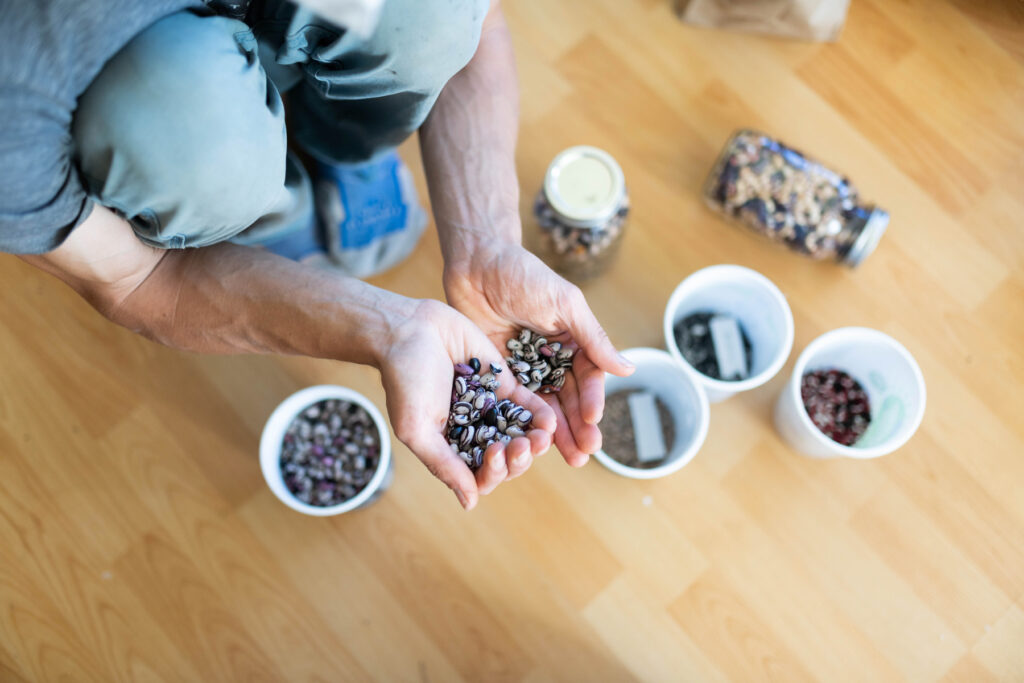
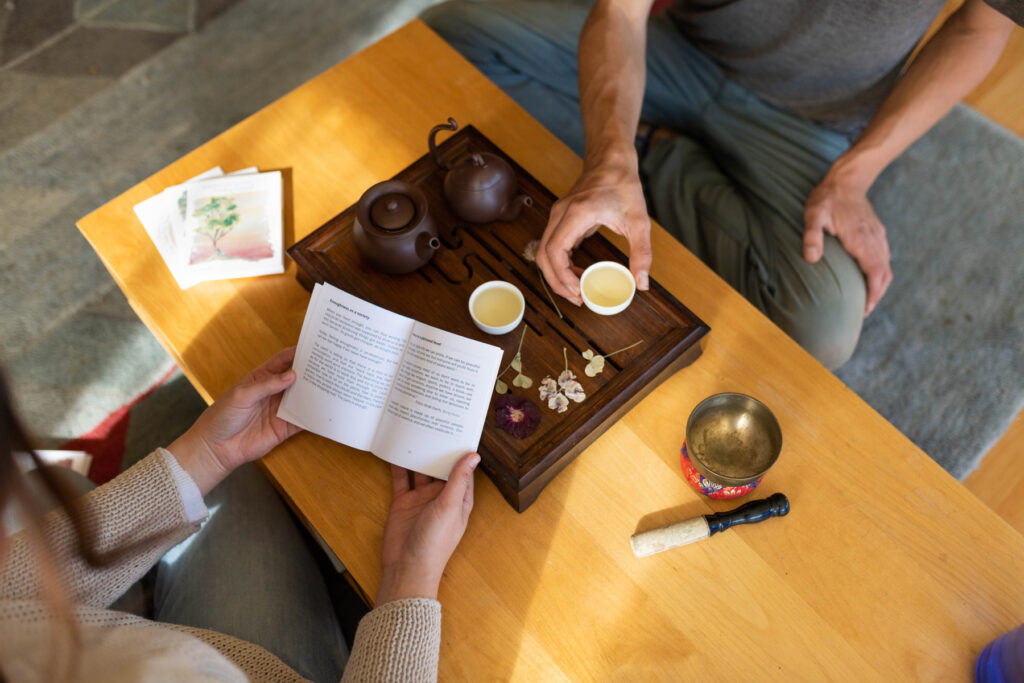
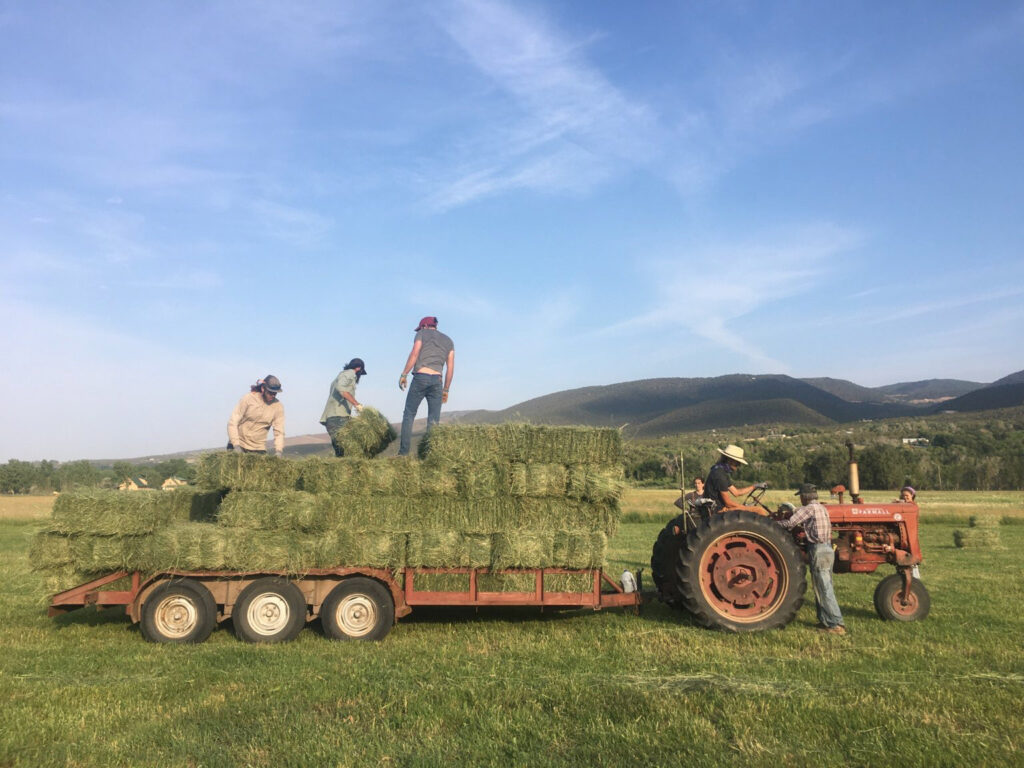
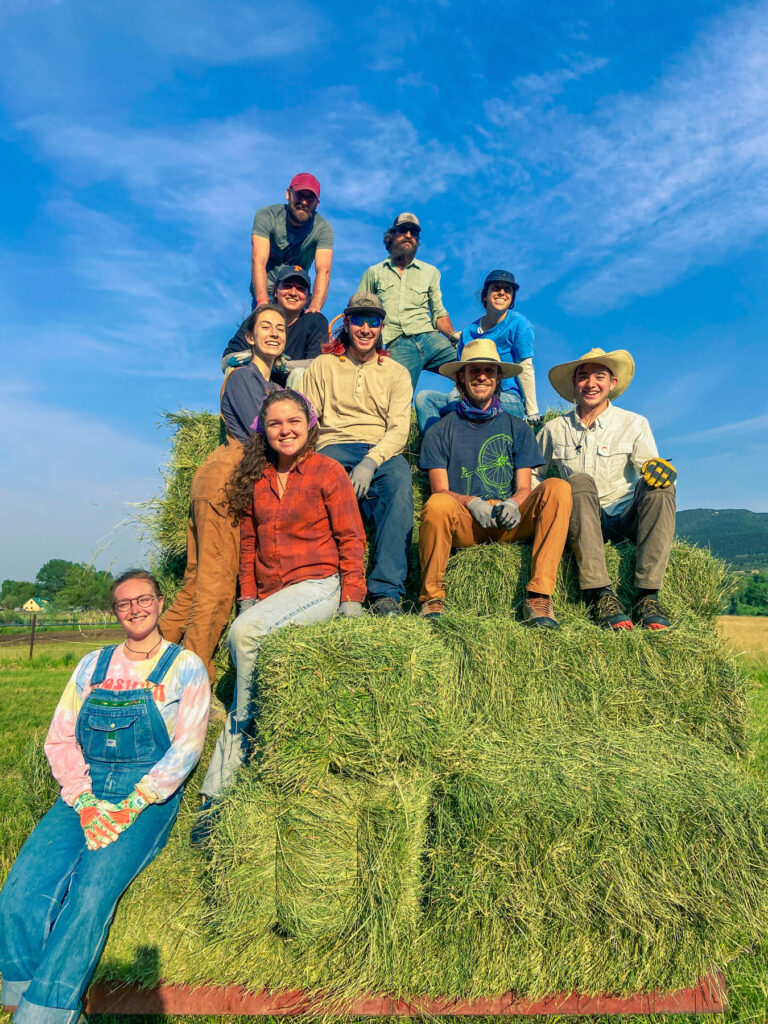
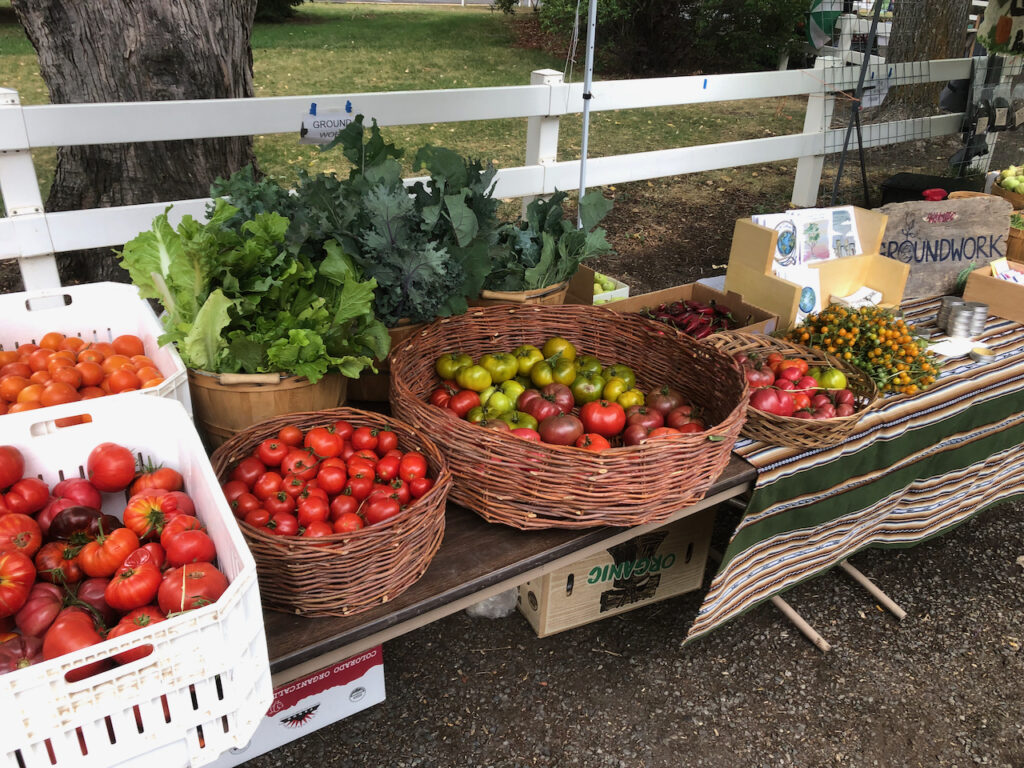
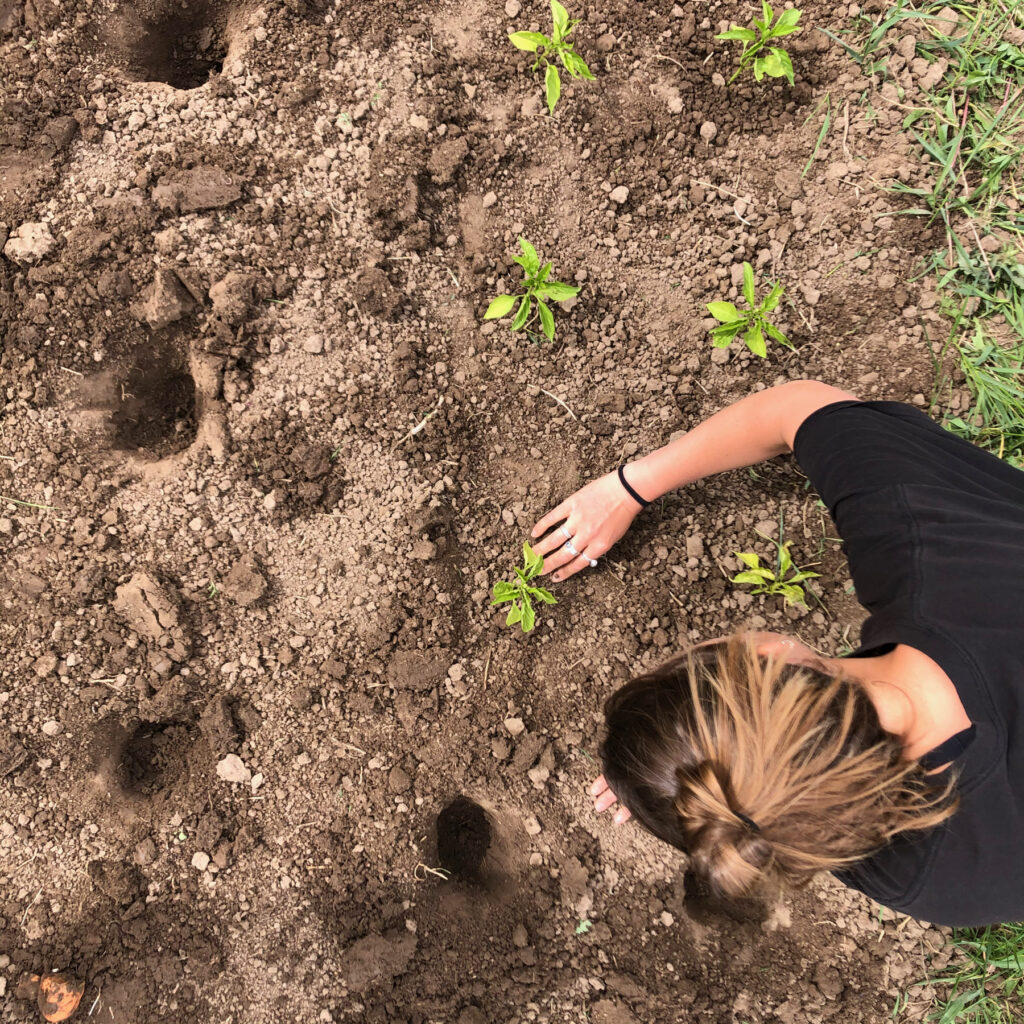
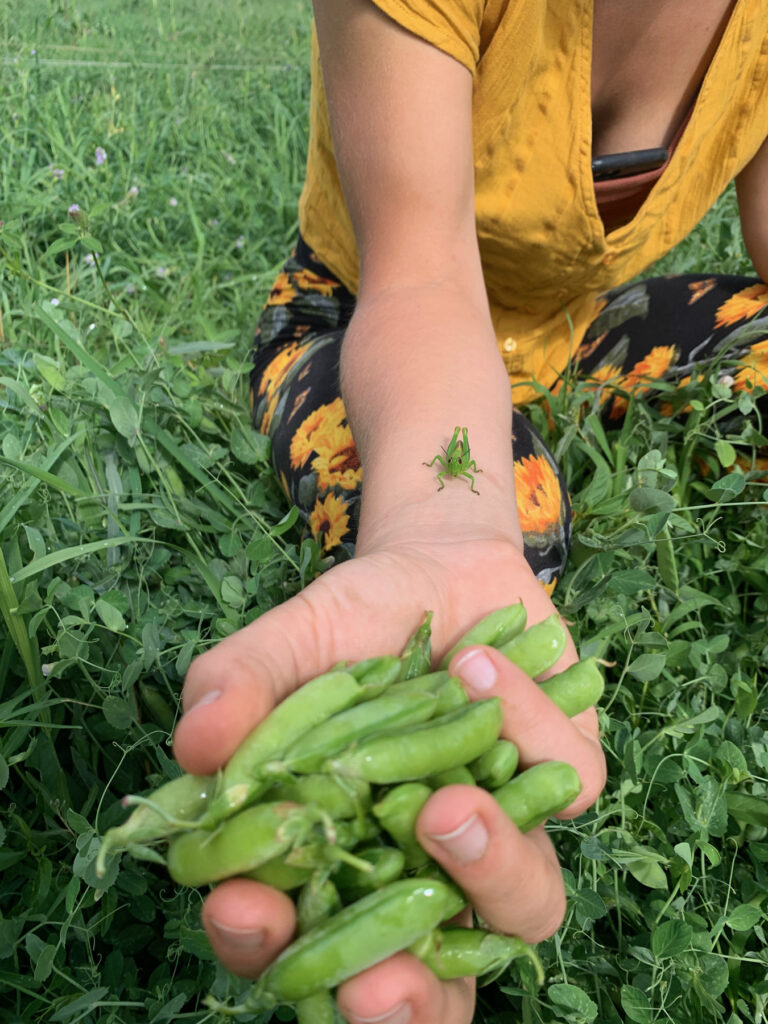
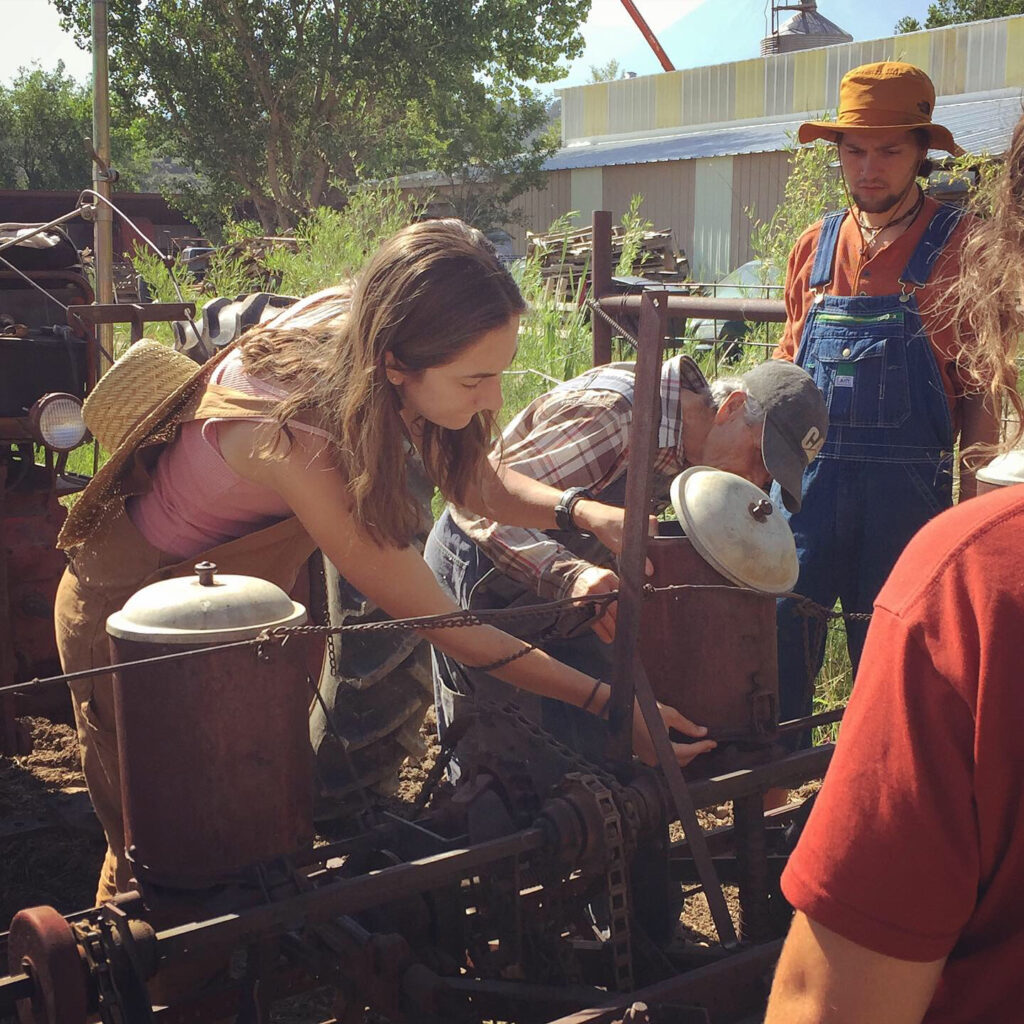
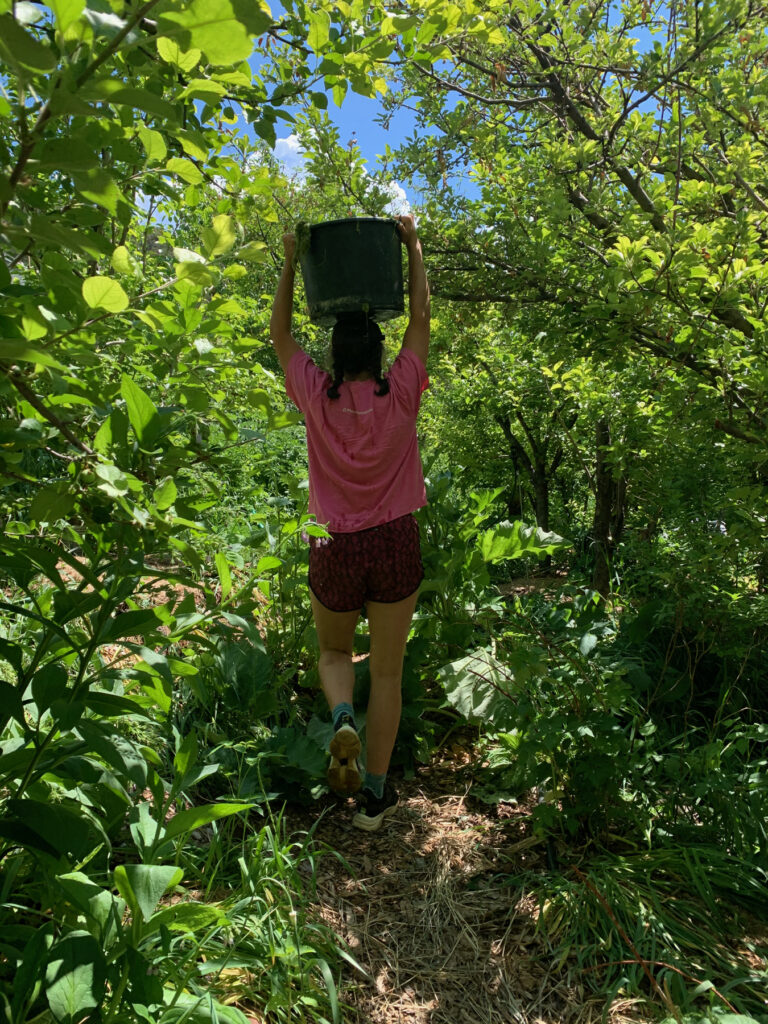
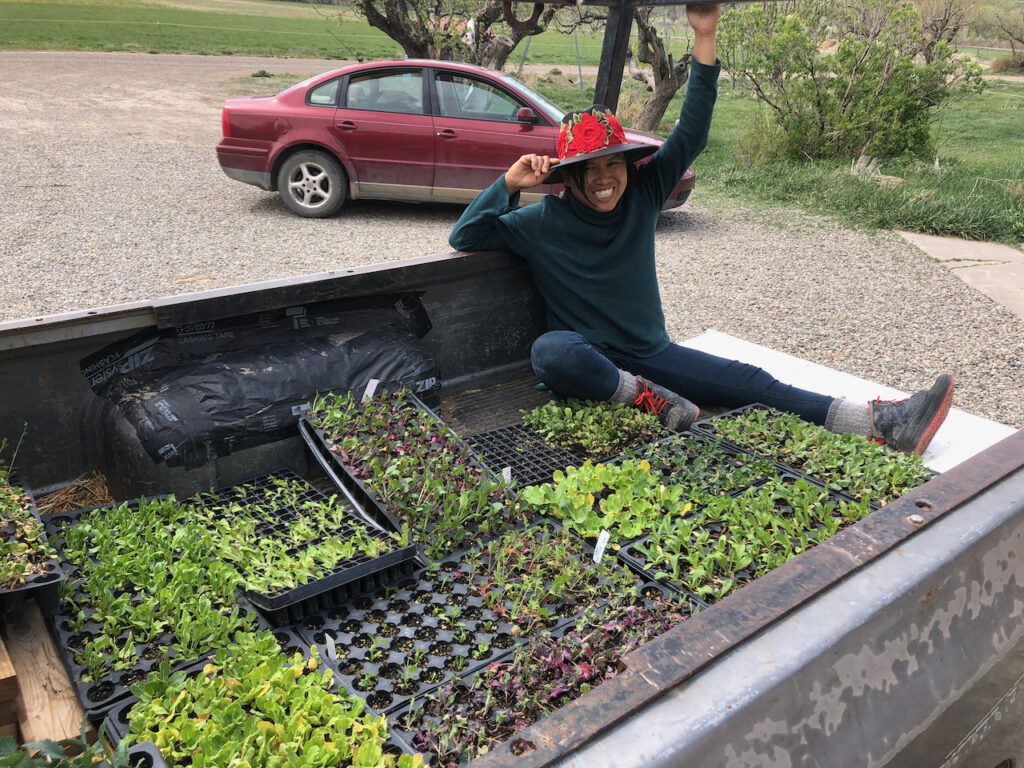
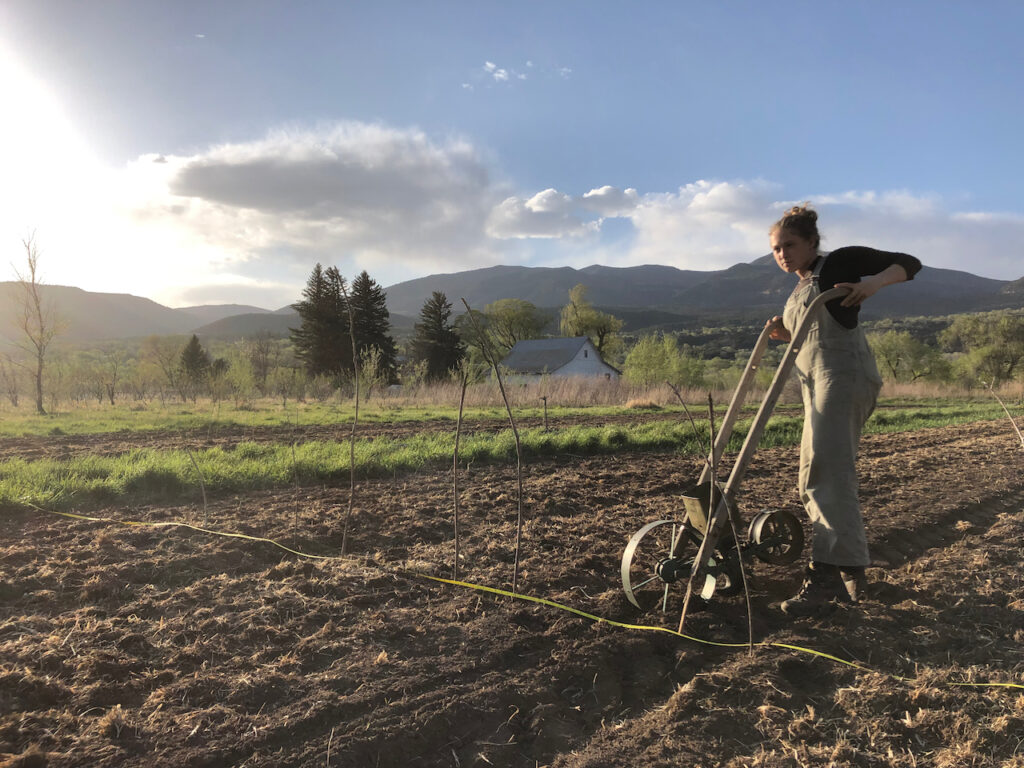
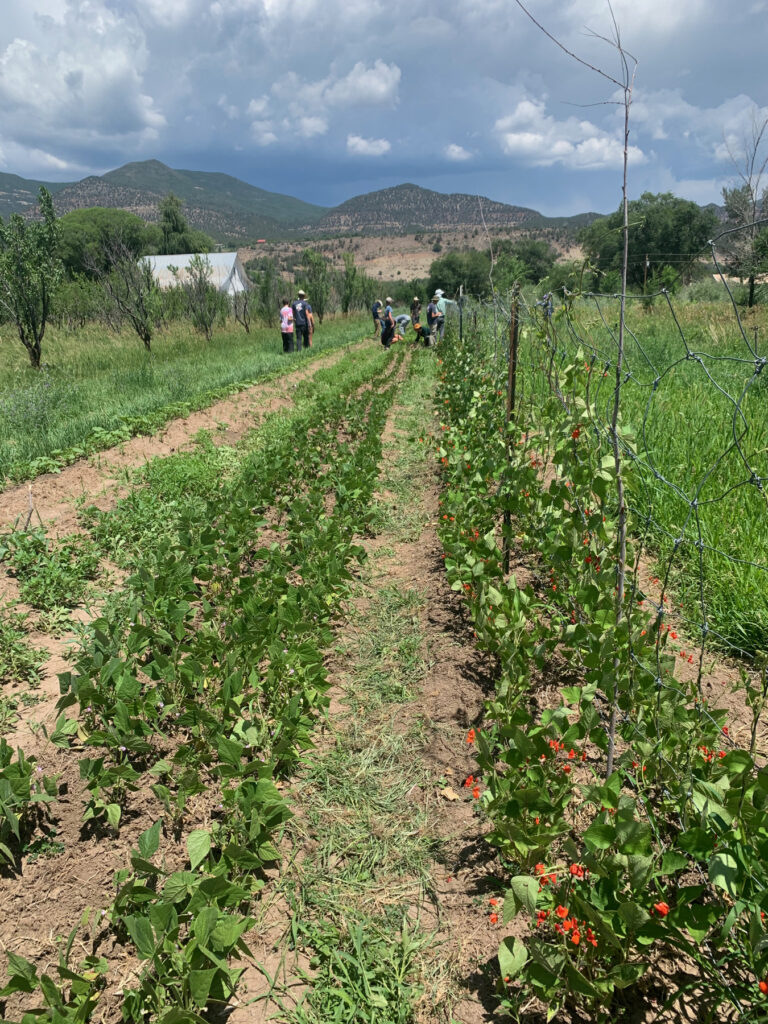
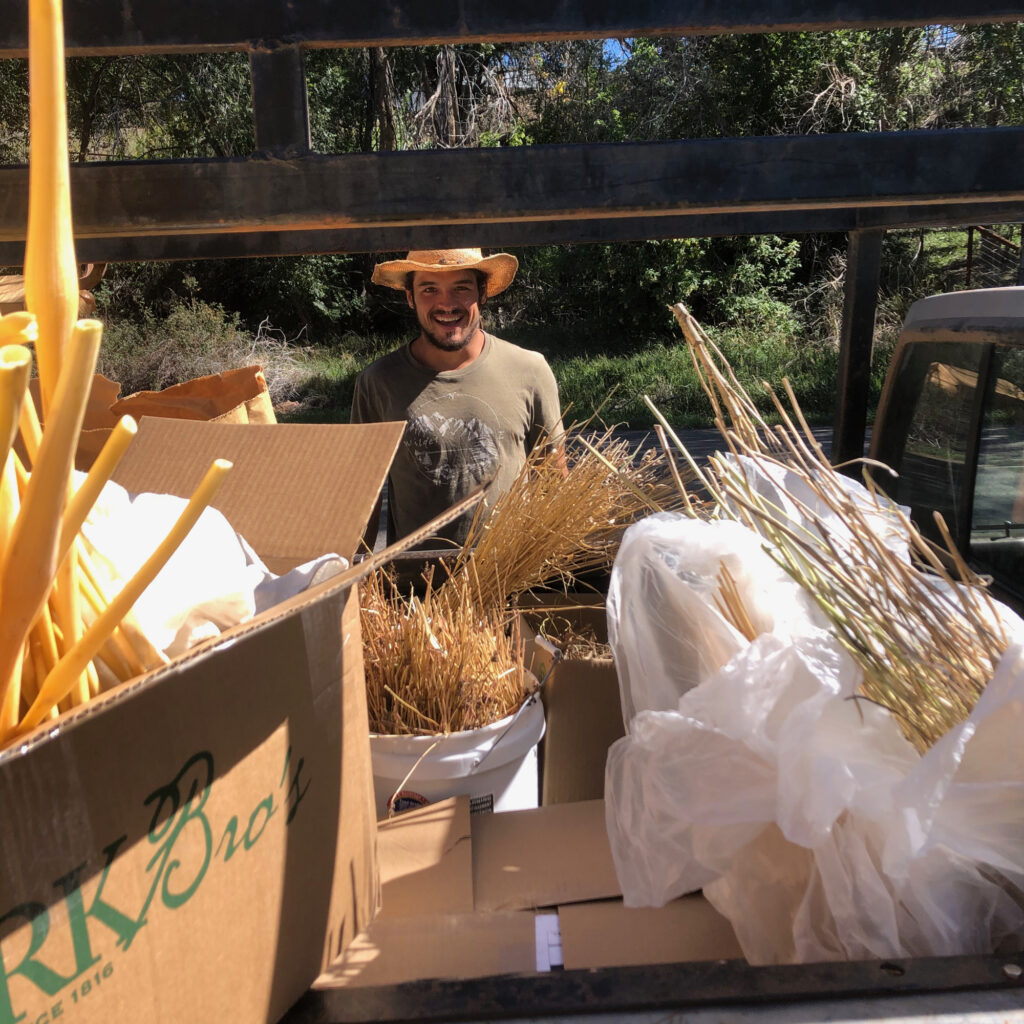
Program Details
Structure
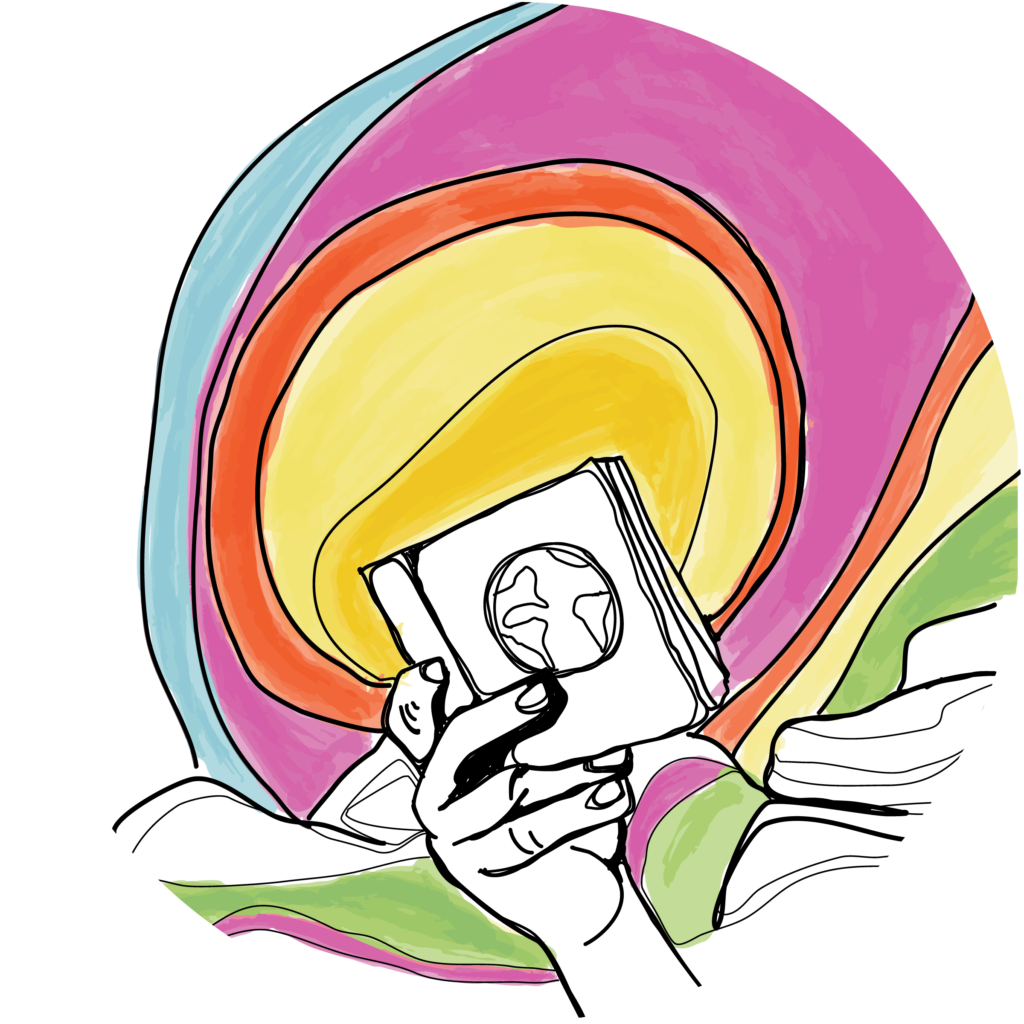
The semester balances 4 different pieces:
- Hands-on experience in food systems: help run an organic seed & vegetable farm
- Seminars on regional and global environmental topics
- Connection to place: Slow living and land-based crafts
- Community: Live, work, cook, eat, create, and play together
Focus & Curriculum
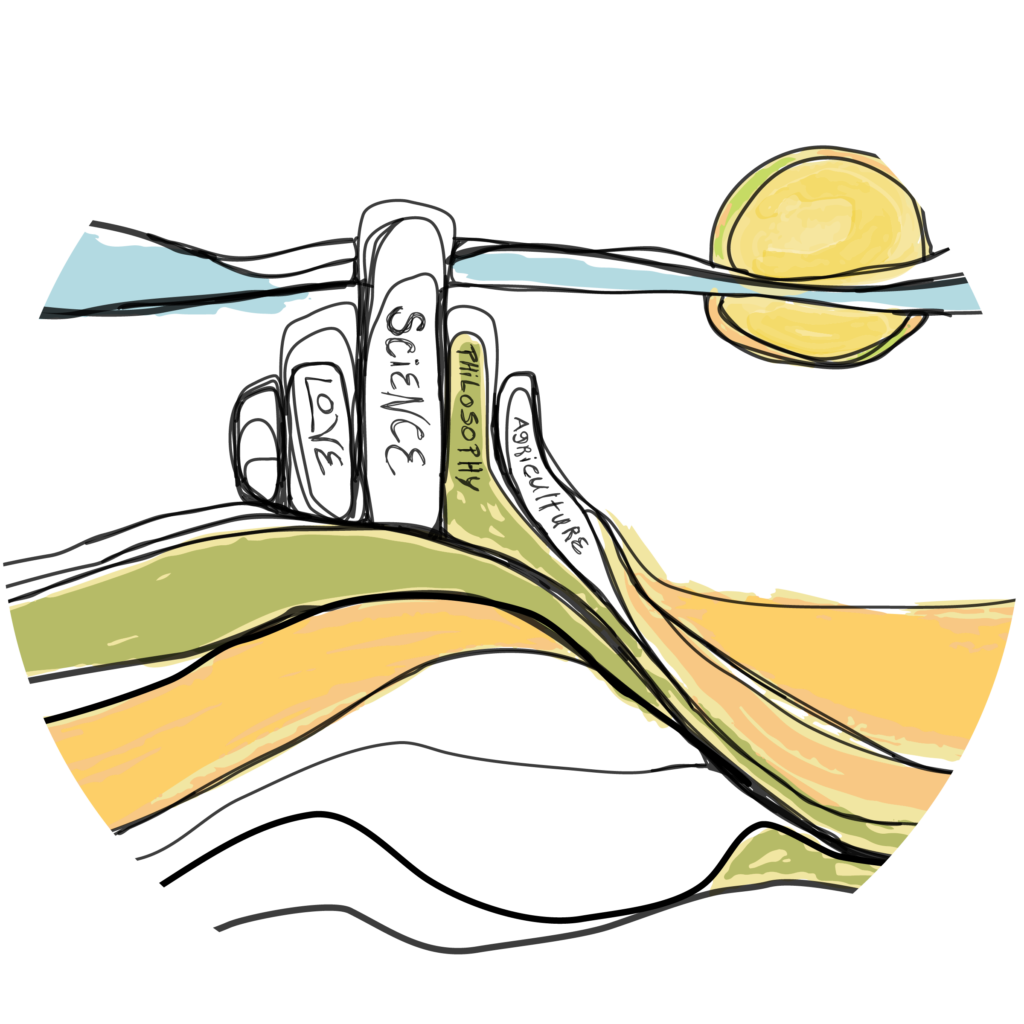
This semester includes investigation into the leading thinkers focusing on the issues we address. Against the backdrop of hands-on work with the land, readings and discussions focus on these areas:
- Seed, Soil, and Story: Imagining A Time Beyond Our Own
- Modernity vs. Integration: Barriers to Ecological Thinking
- Structural Power in the American West: Settler Colonialism, Water, & Public Lands
Skills
We believe in young leaders. That’s why our semester focuses on building skills and context. Whether tending a small farm, understanding complex environmental laws, or organizing for positive change, we know that just because you haven’t done it before doesn’t mean you can’t be a pro in a few months. By the end of the summer, you can expect to have the skills to be a well-rounded and effective agent for the change you want to bring to the world. For more on the tangible outcomes of the summer, click below.
Who are our students?
This semester is for anyone wanting to expand their classroom knowledge to real life skill-building and practical experience in sustainable culture, farming, community building, and environmental leadership. Some students come with prior experience with food systems and education while others may not, but all of our students have the desire to create meaningful and positive change for a sustainable future. Students are open to challenge and ready to commit themselves to learning deeply about the land, and about themselves. We designed this experience to offer what we would have wanted when we were younger. Most of us at Groundwork share a common experience: in our early 20’s, we had received degrees in environmental science and worked in environmental fields, but we still had the sense that nobody in our society really had a vision for a sustainable path forward. We believe that with some mentorship, resources, and space to thrive, young people have the power to shift our society.
Still Have Questions?
If you have questions about anything related to the semester, please give us a call or email before applying. We love talking with prospective students.
Phone: 720-326-9139
Email: info@layinggroundwork.org (or use our contact form)
